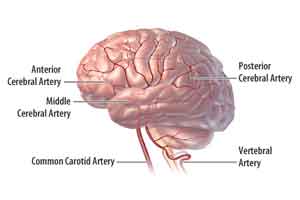- Home
- Editorial
- News
- Practice Guidelines
- Anesthesiology Guidelines
- Cancer Guidelines
- Cardiac Sciences Guidelines
- Critical Care Guidelines
- Dentistry Guidelines
- Dermatology Guidelines
- Diabetes and Endo Guidelines
- Diagnostics Guidelines
- ENT Guidelines
- Featured Practice Guidelines
- Gastroenterology Guidelines
- Geriatrics Guidelines
- Medicine Guidelines
- Nephrology Guidelines
- Neurosciences Guidelines
- Obs and Gynae Guidelines
- Ophthalmology Guidelines
- Orthopaedics Guidelines
- Paediatrics Guidelines
- Psychiatry Guidelines
- Pulmonology Guidelines
- Radiology Guidelines
- Surgery Guidelines
- Urology Guidelines
Researchers find why there is increased incidence of Stroke in women?

Dr.Rexrode and team delved into the scientific literature to investigate evidence about risk factors that are unique to women and which may be causative factors for increased incidence of Stroke in women as compared to men.The researchers after systematic review found that it was more in women who have a history of pregnancy complications including gestational diabetes, pre-eclampsia or hypertension during or immediately following pregnancy.The findings have been published in a paper this week in Stroke .
The various risk factors which researchers reported and that elevate stroke risk among women include:
- Early age of menarche (less than 10 years old)
- Early age at menopause (less than 45 years old)
- Low levels of the hormone dehydroepiandrosterone (DHEAS)
- Taking oral estrogen or combined oral contraceptives
Stroke disproportionately affects more women than men. It is the third leading cause of death in women in the United States, is a leading cause of disability and affects 55,000 more women than men each year. Investigators from Brigham and Women's Hospital and their colleagues are exploring the effects of potential risk factors that are unique to women, including hormone levels, hormone therapy, hormonal birth control, pregnancy and time of menarche and menopause. In a paper this week in Stroke as part of a special issue focused on women's health in honor of the American Heart Association's Go Red month, the team highlights risk factors with strong support in the scientific literature as well as important areas where future research needed, including the effects of hormone therapies for transgender people.
"Many people don't realize that women suffer stroke more frequently than men, and mortality is much higher among women. As women age, they are much more likely to have a stroke as a first manifestation of cardiovascular disease rather than heart attack," said corresponding author Kathryn Rexrode, MD, MPH, of the BWH Department of Medicine. "We want to better understand susceptibility: why do more women have strokes than men? What factors are contributing and disproportionately increasing women's risk?"
The team notes that while many of these factors are extremely common - only a fraction of women who have one or more will have a stroke in their lifetimes. However, Rexrode emphasizes that it is important for clinicians to consider these factors and others - including women who have a history of pregnancy complications including gestational diabetes, pre-eclampsia or hypertension during or immediately following pregnancy.
"These women should be monitored carefully and they should be aware that they are at higher risk, and motivated to adhere to the healthiest lifestyle behaviors to decrease the risk of hypertension and subsequent stroke," Rexrode said.
Certain risk factors - such as taking transdermal estrogen or progestogen-only contraception - need further research, according to the authors. The team also conducted a search of the literature for studies on stroke risk factors unique to transgender people, but report that data on the effects medical treatment with estrogens, anti-androgens, or a combination of both is scant. Research on how to decrease risk among women with a history of pregnancy complication is another area ripe for additional research.

Disclaimer: This site is primarily intended for healthcare professionals. Any content/information on this website does not replace the advice of medical and/or health professionals and should not be construed as medical/diagnostic advice/endorsement or prescription. Use of this site is subject to our terms of use, privacy policy, advertisement policy. © 2020 Minerva Medical Treatment Pvt Ltd